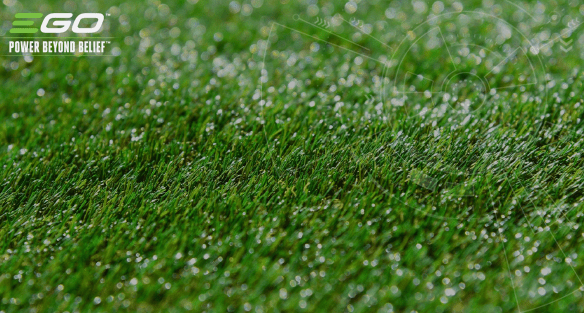Artificial turf looks convincingly like a neat grass lawn and without the hard work associated with garden maintenance. Who wouldn’t think twice?
Unfortunately, science says that fake grass is bad for the environment. It’s bad for soil, sea, the air we breathe, the food we eat, animals, insects and human beings.
It’s true that some gardening practices give natural turf lawns a bad name - for example, if you used a petrol lawn mower, hook up a sprinkler to the mains, or apply harsh chemical feeds.
However, we’ve got plenty of advice for greener lawn maintenance to help you cut the time you need to spend on it, as well as helping it support essential diversity for insects, birds and animals. And, let’s see some facts.
20 facts related to artificial grass
- ‘AstroTurf’ was invented in 1966 by Monsato (also the original manufacturer of RoundUp)
- Now made by different manufacturers using varying ingredients including chemicals
- Handles heavy use, extreme conditions, and doesn’t need cutting, feeding or watering
- Lasts between 10 and 20 years and requires regular cleaning (jet washing, vacuuming)
- Made from synthetic fibres with infills of sand and ‘rubber crumb’ (recycled rubber)
"Handles heavy use, extreme conditions, and doesn’t need cutting, feeding or watering."
- Recycled rubber is usually from vehicle tyres and contains dangerous toxins
- Chemicals found in recycled rubber can cause cancer and other health issues
- Deteriorating rubber and synthetic fibres are categorised as microplastics
- These microplastics are washed into the environment - air, soil and waterways
- Between 12% and 50% of all microplastic pollution originates from artificial turf
"Between 12% and 50% of all microplastic pollution originates from artificial turf."
- One artificial turf retailer reported a sales increase of 60% in the year to June 2021
- Artificial turf can be recycled but the reality is that this doesn’t happen
- Hybrid turf, common on sports pitches, is living grass combined with synthetic fibres
- Artificial and hybrid lawns fail to provide a habitat or food for insects, birds and animals
- More than 40% of insect species are declining and a third are endangered says a study
"Most artificial turfs have holes but still slow down water drainage, increasing flood risk."
- The RSPB says many small garden bird species have experienced huge decline since 2020
- Artificial turf retains and builds summer heat and can burn delicate skin
- Most artificial turfs have holes but still slow down water drainage, increasing flood risk
- The UK has lost 97% of wildflower meadows that were around in the 1930s
- Artificial turf doesn’t have any environmental benefits - but a natural grass lawn does
Easier living with a natural turf lawn
Having a natural grass lawn means you have to spend time maintaining it. However, there’s a trend for approaching lawn maintenance with a light touch - and it won’t eat into your Sunday afternoons.
- Mow less often or sow wildflowers and create paths
- Ditch petrol - choose an efficient battery lawn mower
- Embrace ‘weeds’ like clover, moss and dandelions
- Use water from a butt or grey water instead of from the mains
You might find 'Eco-friendly lawn care for green gardeners' interesting for additional tips and information.
Ditch the petrol
One of the most important things you can do to improve your eco-friendly gardening credentials is to replace your petrol power with a cordless, battery-operated lawn mower.
EGO’s lawn mowers are powered by our unique patented ARC Lithium 56V battery. They are so sophisticated that they beat the performance of petrol.
Also, they emit no fumes, have less vibration and are quieter than petrol equivalents - better for your garden, the environment and you. That’s our commitment to innovation and the environment.
